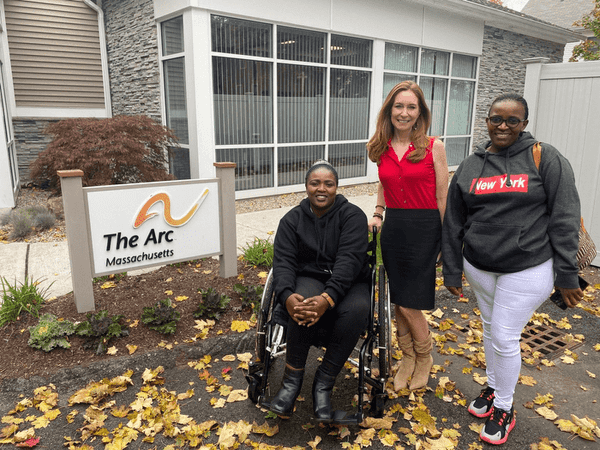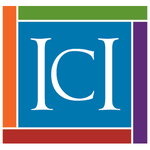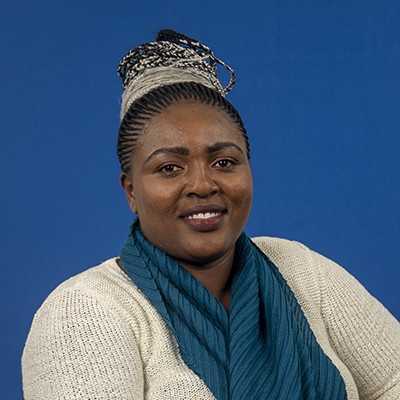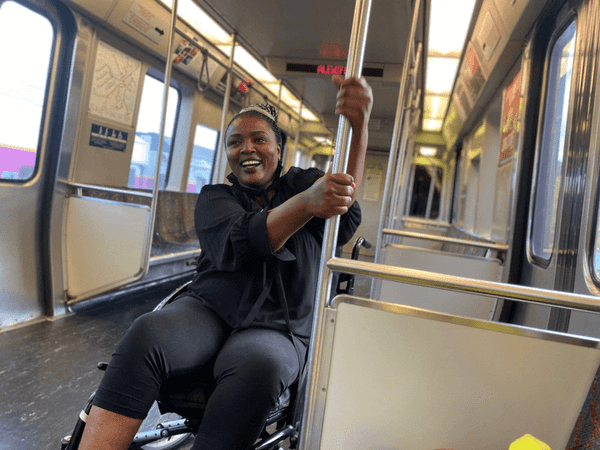How the Professional Fellows Program Provided a New Perspective
Salome N Gitau is a 2022 Fellow in the Professional Fellows Program on Inclusive Civic Engagement. This program is sponsored by the U.S. Department of State’s Bureau of Educational and Cultural Affairs and is administered by the Institute for Community Inclusion (ICI) at the University of Massachusetts Boston in partnership with Humanity and Inclusion (HI). The following blog post was written by guest author Salome N Gitau.
When I arrived in Boston in the afternoon of September 29, 2022, I had no idea how the Professional Fellows Program on Inclusive Civic Engagement would relate to my study of National Health Insurance Fund (NHIF) coverage of urinary and bowel incontinence supplies for persons with spinal cord injury (SCI). Little did I know, for me to pursue anyone — either the NHIF or individuals with SCI — I needed to be equipped with advocacy skills.
In a meeting with the Disability Policy Consortium, one staff member asked me, “Salome, why do you think individuals with SCI do not have NHIF coverage?”
What this question taught me is that identifying as an individual who lives with SCI is not enough. I also need to consider other people’s perspectives. Could it be they do not trust the NHIF? Could it be they cannot afford the 500 Kenyan shilling (approximately US$5) per month NIHF coverage? Understanding the very people for whom I want to advocate should be my first step.
What I learned in my fellowship is that in the US, a disability in most cases is not viewed as a burden. Most people I met who live with a disability were married. This is quite different from my home country of Kenya. I assume that people and partners/spouses in the US can look beyond the wheelchairs, walking canes, hearing aid devices, and other accommodations.
Back home, in most cases, people with disabilities do not have partners. People with disabilities are perceived as unattractive because of other people’s inability to detach the individual from their impairment. In Kenya, I should be a homemaker, but a typical Kenyan would think my physical disability will interfere with that.
I also learned that the US has so-called personal care assistant (PCA) programs. This is unheard of in Kenya, but it’s something I would want to see implemented at home.
I learned about Operation House Call (OHC), a program run by The ARC of Massachusetts, that uses people with disabilities as teachers to support health care professionals in their work with individuals who have intellectual and/or developmental disabilities. In Kenya, when I — a person living with SCI — go to the hospital, the doctors often have no idea how to deal with me. I believe that if programs like OHC are part of the curriculum in medical school, then neither the doctor nor the SCI patient will feel awkward when going for a medical service.
I’m grateful that this fellowship has already given me a new perspective and provided me with many ideas that I plan to bring to my home country of Kenya!
Salome (first on the left) visits Maura Sullivan, senior director of government affairs and health policy at The Arc of Massachusetts (middle).


